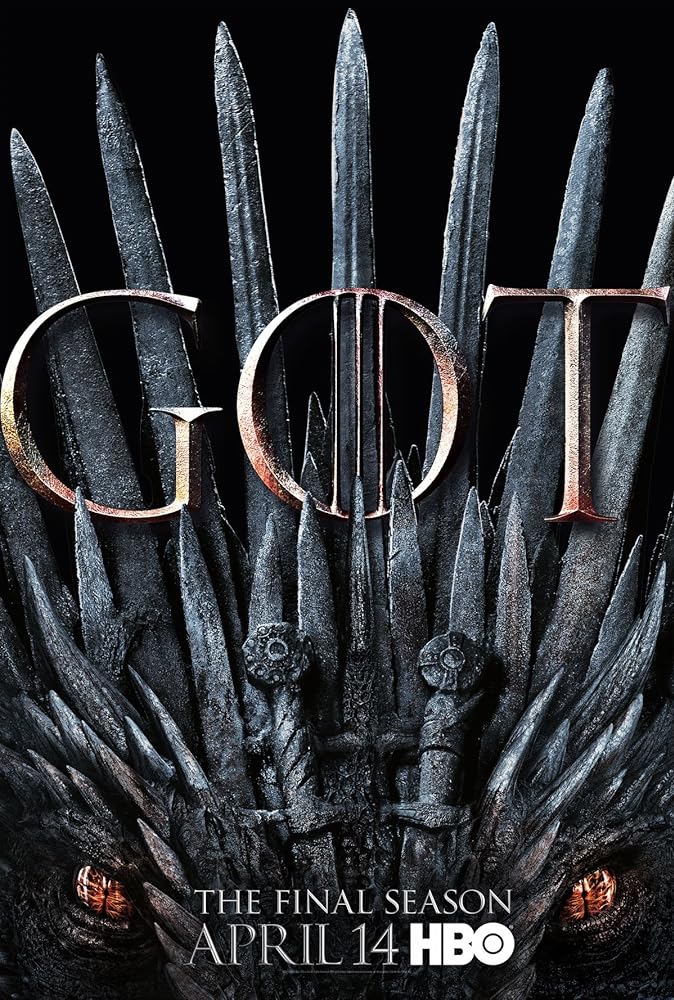I may be the only person in America
History may be a guide to us,
because HBO has been in this exact situation before. At the dawn of the new millennium, HBO was
the forerunner – and for a long time, the only place – where one could find
some of the great series of the revolution. But in 2007, it was starting to
look like its run was over. Six Feet
Under was gone. The cancellation of Deadwood
and the fallout from the why was a big blow to the network. The Wire was about to begin its final
season. And The Sopranos – the series
that had built the network had literally faded to black. What’s more, other
networks were filling the void that HBO was leaving. FX has revolutionized
basic cable with The Shield, Showtime,
its poorer cousin for many years, was stunning the world with Dexter, and AMC was about to change the
conversation again with Mad Men. HBO didn’t look like it had anything in
its coffers to replace it.

But the network would be saved from
oblivion from a series that came out of a blood soaked, overly sexual, incest
filled series of books. I speak, of course, about Alan Ball’s True Blood based off Charlayne Harris’
Sookie Stackhouse adventures. Never
considered an exceptional series critically – its single Emmy nomination in
2010 always smacked of tokenism to me – it nevertheless managed to find a huge
audience, albeit nowhere near as big as The
Sopranos at its peak.
However, the cushion of True Blood’s success allowed HBO to go
about experimenting in ways it hadn’t done since Oz had debuted. In that same period came In Treatment, an intriguing series which followed a psychiatrist
played by Gabriel Byrne and the patients he saw week after week ( HBO could
never quite find the way to air properly; in retrospect, it reads like an early
Netflix series) Big Love, one of the rare HBO productions that was underrated by
the Emmys, Bored to Death, an
intriguing dramedy that among its other virtues continued Ted Danson’s late
career renaissance, and Boardwalk Empire,
a series that started out like gangbusters, and due to problems behind the
scenes, never quite achieved the greatness it could have. None of these series
emerged as smashes, but they did show that HBO was still playing at a high
level, and one can argue that this kind of experimentation was what let the
executives to greenlight Game of Thrones in
the first place.
And having a smash like Game of Thrones has allowed HBO to
experiment again. Not all of their stories have been successes, but they have
allowed for just brilliant creations as True
Detective (the first and third seasons anyway), The Leftovers and Westworld. The
comedies have always been rather consistent, but they’ve also created such
intriguing offerings as Barry, Insecure, and
Getting On. They haven’t all been
successes, but at least these shows have given HBO room to grow.
The key is not to make the mistakes
of AMC and put your entire future on a single franchise. They’ve already
greenlit one Game of Thrones prequel
series, and there are rumors that are at least three more. Prequel series are always risky – for every Better Call Saul, you get The Carrie Diaries – and depending on
how Game of Thrones ends, the fan
base may not be as wild to go back to Westeros.
And eventually, you have to go to something new, besides relying on
formulas. One doesn’t want to end up like NBC reliant on the whims of Dick
Wolf.
There are signs that HBO is looking
to the future, and that is a good sign. Getting past the muck that was series
like Veep is always a good idea. But
don’t stake your entire future on a single franchise. Otherwise, you will be in
for a long, cold winter.
No comments:
Post a Comment